Antibodies
Antibodies, also known as immunoglobulins, are Y-shaped proteins produced by the immune system in response to the presence of foreign substances called antigens. These antigens can be bacteria, viruses, or other microorganisms that invade the body and trigger an immune response.
Structure of Antibodies
Antibodies are made up of four polypeptide chains: two heavy chains and two light chains. The two heavy chains are linked to each other and to a pair of light chains by disulfide bonds. Each antibody has a variable region that binds to a specific antigen and a constant region that mediates the various effector functions of antibodies.
Functions of Antibodies
- Neutralization: Antibodies can bind to antigens and neutralize their harmful effects, preventing them from infecting host cells.
- Opsonization: Antibodies can mark antigens for destruction by phagocytic cells, such as macrophages and neutrophils.
- Complement activation: Antibodies can activate the complement system, leading to the lysis of foreign cells and enhanced phagocytosis.
- Agglutination: Antibodies can bind to multiple antigens, causing them to clump together, which facilitates their removal from the body.
Types of Antibodies
There are five main classes of antibodies, known as immunoglobulin classes:
- IgM: The first antibody produced during an initial immune response.
- IgG: The most abundant antibody in the bloodstream, providing long-term immunity.
- IgA: Found in mucosal areas such as the respiratory and gastrointestinal tracts, as well as in saliva and tears.
- IgE: Involved in allergic reactions and defense against parasitic infections.
- IgD: Found on the surface of B cells and involved in the activation of these cells.
Study Guide
- Describe the structure of antibodies and their functions.
- Explain the role of antibodies in the immune response, including neutralization, opsonization, complement activation, and agglutination.
- Compare and contrast the five classes of antibodies, including their distribution in the body and their roles in immunity.
- Discuss the process of antibody production and the role of B cells in the immune response.
- Examine the clinical applications of antibodies, such as in immunotherapy and diagnostic tests.
◂Earth Science Worksheets and Study Guides High School. The Rock Cycle
Worksheet/Answer key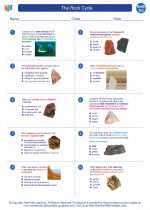 The Rock Cycle
The Rock Cycle  Worksheet/Answer key
Worksheet/Answer key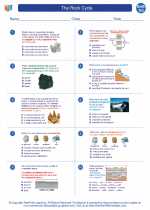 The Rock Cycle
The Rock Cycle  Worksheet/Answer key
Worksheet/Answer key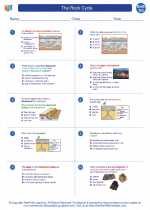 The Rock Cycle
The Rock Cycle  Worksheet/Answer key
Worksheet/Answer key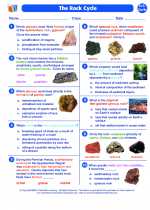 The Rock Cycle
The Rock Cycle  Vocabulary/Answer key
Vocabulary/Answer key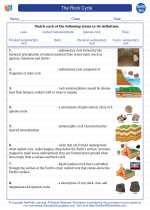 The Rock Cycle
The Rock Cycle  Vocabulary/Answer key
Vocabulary/Answer key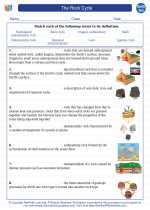 The Rock Cycle
The Rock Cycle  Vocabulary/Answer key
Vocabulary/Answer key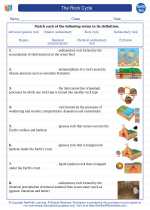 The Rock Cycle
The Rock Cycle 

 Worksheet/Answer key
Worksheet/Answer key
 Worksheet/Answer key
Worksheet/Answer key
 Worksheet/Answer key
Worksheet/Answer key
 Vocabulary/Answer key
Vocabulary/Answer key
 Vocabulary/Answer key
Vocabulary/Answer key
 Vocabulary/Answer key
Vocabulary/Answer key

The resources above cover the following skills:
EARTH AND SPACE SCIENCE (NGSS)
Earth’s Systems
Students who demonstrate understanding can:
Develop a model to illustrate how Earth’s internal and surface processes operate at different spatial and temporal scales to form continental and ocean-floor features.
EARTH AND SPACE SCIENCE (NGSS)
Earth’s Systems
Students who demonstrate understanding can:
Develop a model to illustrate how Earth’s internal and surface processes operate at different spatial and temporal scales to form continental and ocean-floor features.
EARTH AND SPACE SCIENCE (NGSS)
Earth’s Systems
Students who demonstrate understanding can:
Develop a model to illustrate how Earth’s internal and surface processes operate at different spatial and temporal scales to form continental and ocean-floor features.
EARTH AND SPACE SCIENCE (NGSS)
Earth’s Systems
Students who demonstrate understanding can:
Develop a model to illustrate how Earth’s internal and surface processes operate at different spatial and temporal scales to form continental and ocean-floor features.